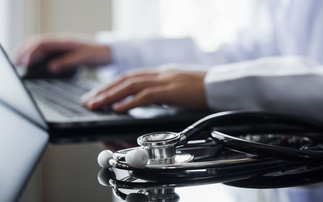But Health Secretary admits that NHS has not yet won the public's trust in keeping personal data safe
Health Secretary Jeremy Hunt has said that he aims to get a quarter of UK smartphone users - 15 per cent of all NHS patients - using apps to access NHS advice, services and medical records by the e...
To continue reading this article...
Join Computing
- Unlimited access to real-time news, analysis and opinion from the technology industry
- Receive important and breaking news in our daily newsletter
- Be the first to hear about our events and awards programmes
- Join live member only interviews with IT leaders at the ‘IT Lounge’; your chance to ask your burning tech questions and have them answered
- Access to the Computing Delta hub providing market intelligence and research
- Receive our members-only newsletter with exclusive opinion pieces from senior IT Leaders






















